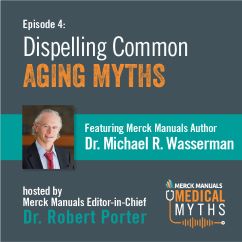Quality of life is often defined as the degree to which a person is healthy, comfortable, and able to participate in or enjoy special occasions and activities. As such, it is highly personal. What one person views as quality of life could vary widely with another person's. For many people, quality of life often revolves around health and health care options, so when people and their doctors are making decisions about medical issues. they should consider the effect quality of life.
When discussing quality of life, older adults, their caregivers, and their doctors should keep the following in mind
The best medical decisions vary from person to person.
These decisions do not depend solely on age.
Avoiding language and attitudes that suggest bias against older adults (ageism) is important. For example, people should not assume that someone at a particular age should not have certain medical care or not participate in certain activities simply because of their age.
Ageism can lead to too much or too little care and negatively affect quality of life.
Health-Related Quality of Life
How health affects quality of life depends on the person. Factors that contribute to better health-related quality of life include the following:
Preventing uncomfortable symptoms (such as pain, shortness of breath, nausea, or constipation)
Feeling emotionally healthy (that is, happy, resilient, and calm)
Being able to do typical daily activities (such as bathing, dressing, and toileting)
Maintaining close relationships with friends and family
Enjoying social activities
Feeling satisfied with the medical aspects of and financial arrangements for health care
Having a healthy body image and sense of sexuality (including intimate relationships)
Some of the factors that negatively influence health-related quality of life include
Mental impairment
Disability
Chronic pain
Dependency on caregivers
Social isolation
These factors may be obvious to people and their doctors. For example, most people think that avoiding or managing chronic pain is an obvious goal for maintaining a high quality of life.
Other factors connected to quality of life, such as the quality of close relationships, cultural influences, religion, spirituality, personal values, and previous experiences with health care, may not be as obvious.
Still other factors, such as social determinants of health (SDOH), influence quality of life. SDOH are the conditions in the places where people live, learn, work, and play that affect a wide range of health and quality of life risks and outcomes.
How some factors affect quality of life cannot necessarily be predicted. In addition, some factors that end up affecting quality of life cannot be anticipated.
Also, perspectives on quality of life can change with circumstances. For example, after the death of a spouse a person's quality of life may change and affect health care goals.
Communicating with Health Care Professionals
People should talk to their doctors and other health care professionals about their quality of life and the effect of their health issues on their life. People and health care professionals should work together to determine health care goals. Even people with mild dementia or cognitive impairment can make their goals and preferences known when health care professionals use simple explanations and questions. Having family members present when discussing the goals of a person with cognitive impairment may be helpful.




